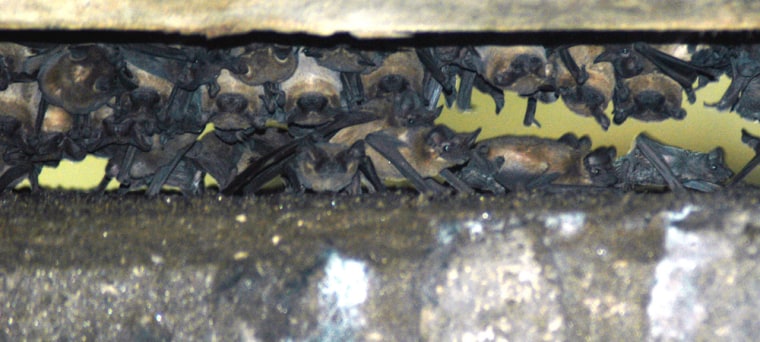The baby bats clinging to their mothers under the Talipahoga Creek bridge look like space aliens, with their gray, scrawny bodies and pointed ears. But the way Georgia highway officials see it, they are still babies. And until they are big enough to fly away on their own, a project to demolish the bridge will just have to wait.
"I appreciate our animal friends," said Billy Willis, president of Albany's Southern Concrete Construction Co. "You've got to live and let live."
Just before the demolition project was to begin early last month, someone noticed the colony of 200 free-tailed bats living under the bridge. Biologists confirmed that some were pregnant, and the state and the contractor agreed to postpone the work until mid-August.
Free-tailed bats are a common species in Georgia, but they are protected by state law just like most other non-game species.
The bats are not visible during the day, but their clucks, chirping and twittering resonate beneath the bridge, about 30 miles south of Columbus.
Jim Ozier, a Georgia state biologist who studies bats, said the animals often roost under bridges because the concrete holds a lot of heat.
"Plus, they can forage along streams and wetland areas to eat pests, such as mosquitos, moths and beetles," he said.
Ozier hopes to work with the Transportation Department on building bat houses under other bridges.
"There are a few things people assume are bad, like snakes, bats and spiders," he said. "But for the most part they aren't damaging and they do some good things."
